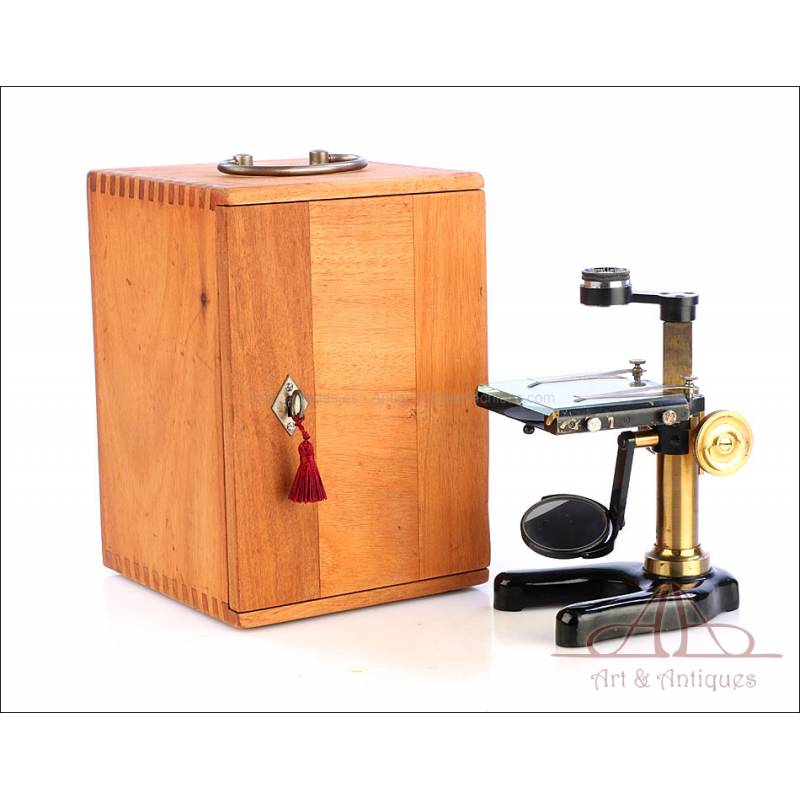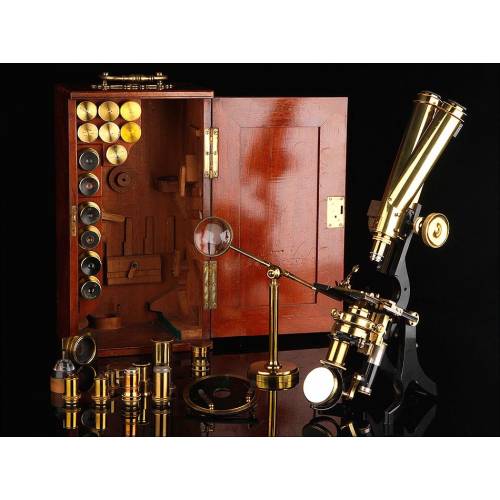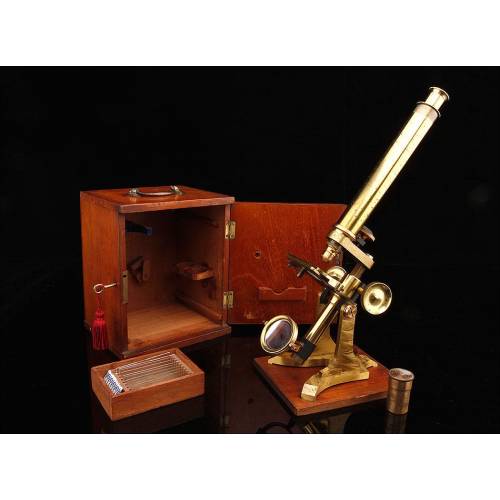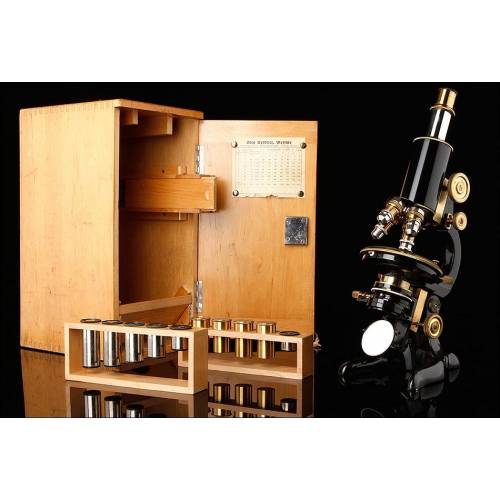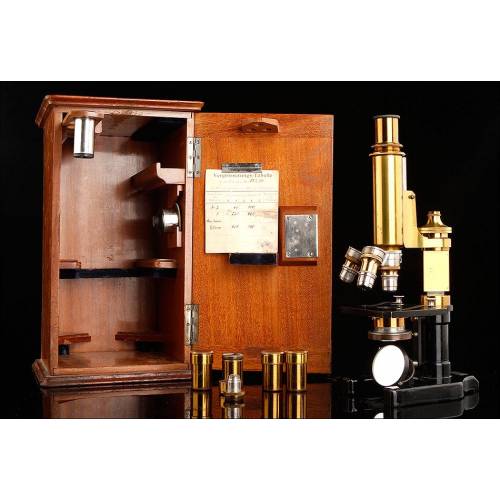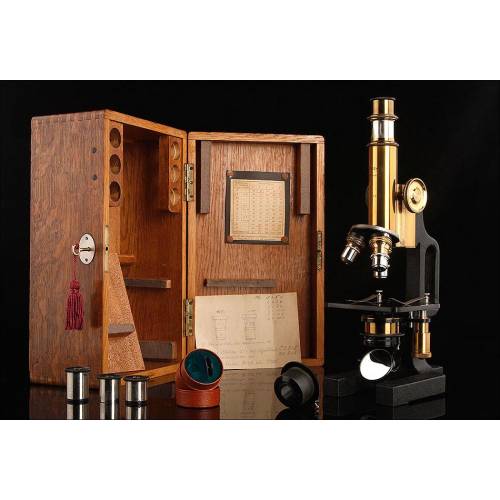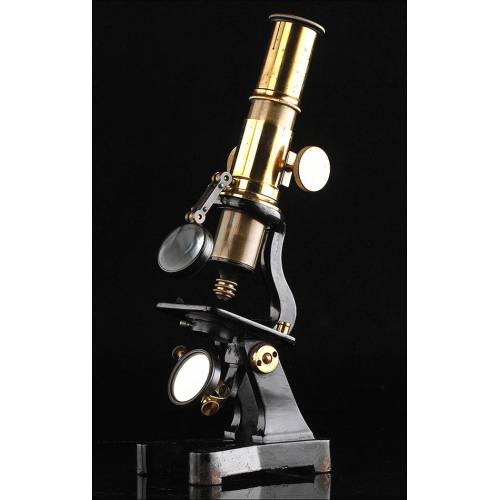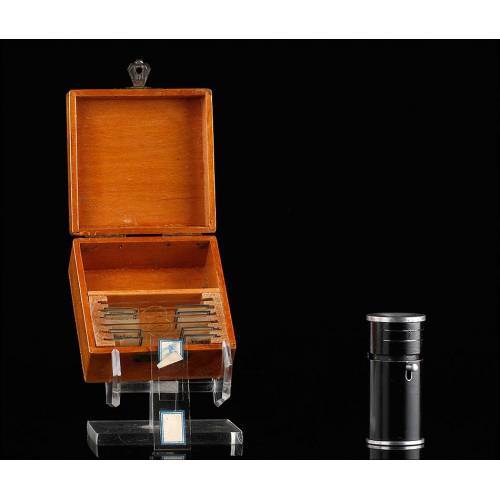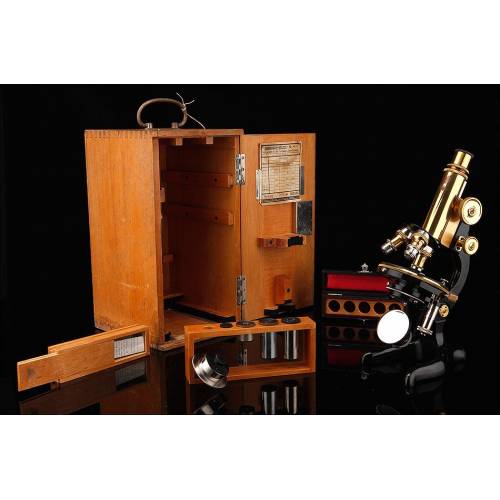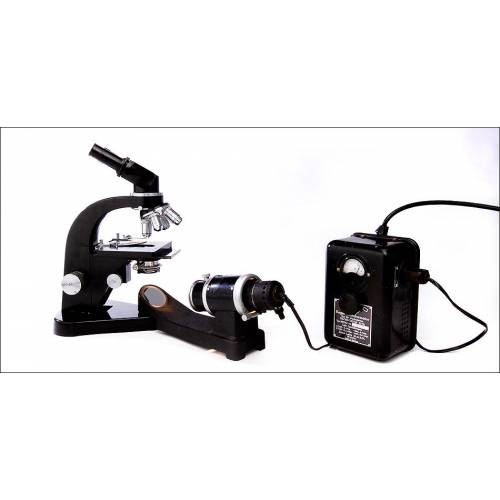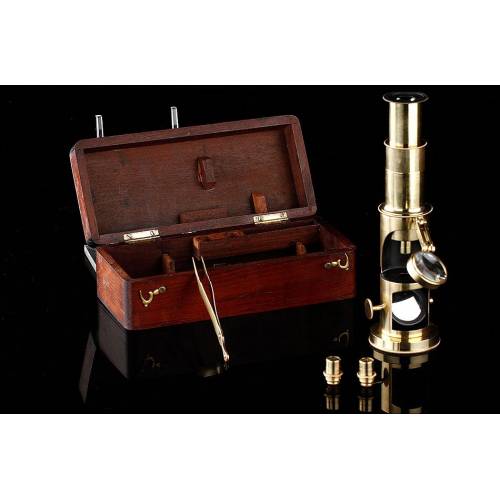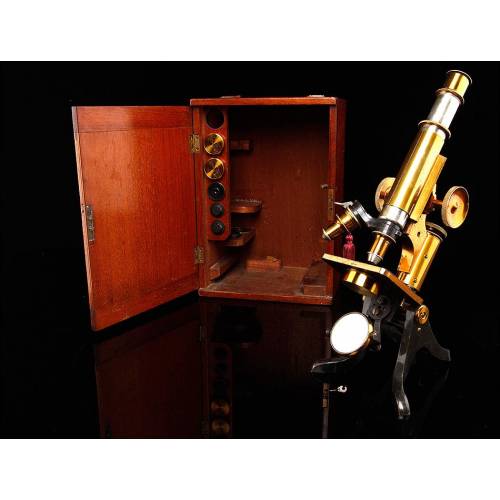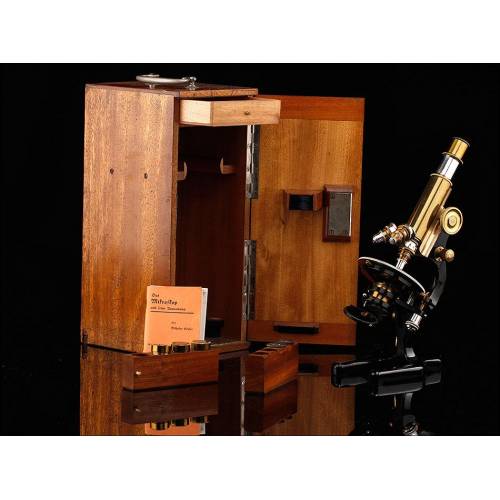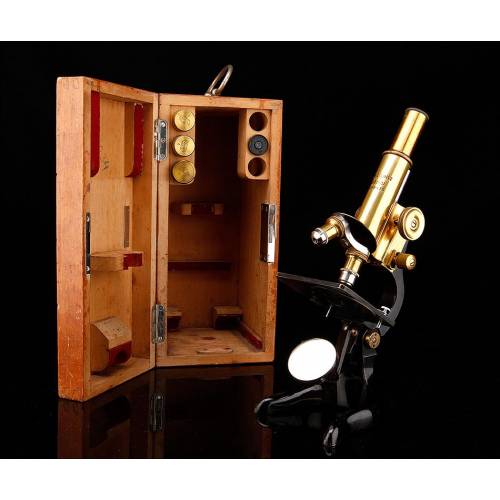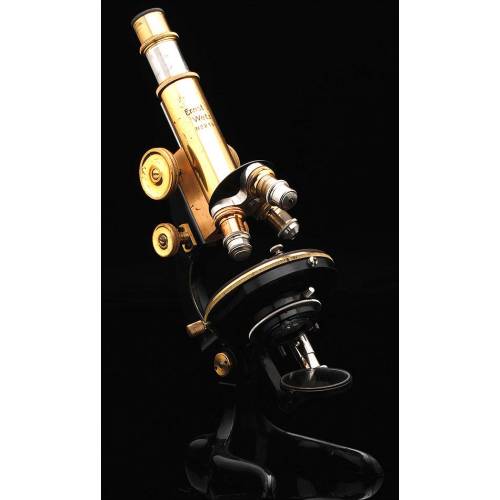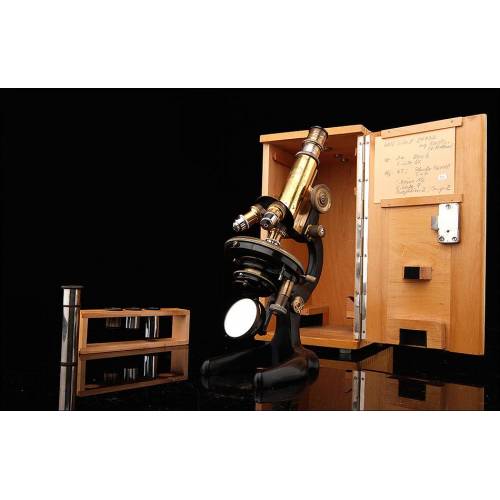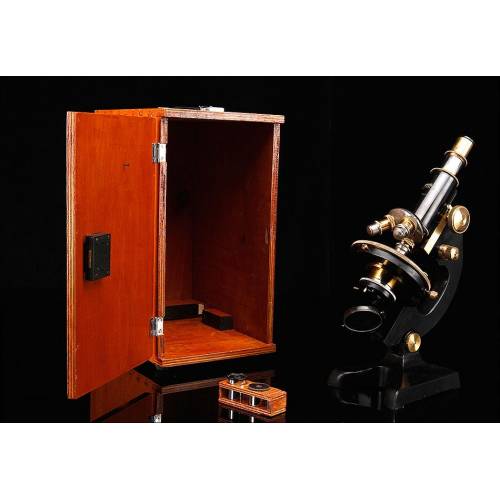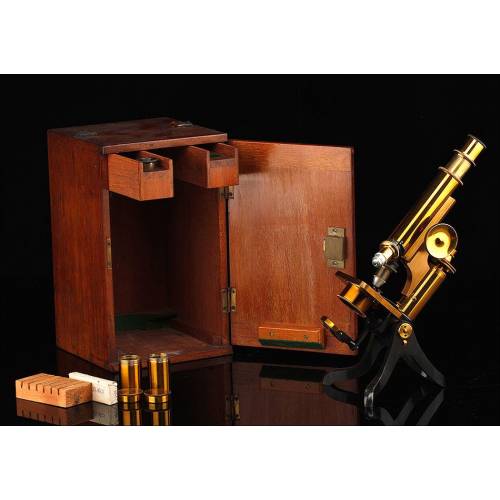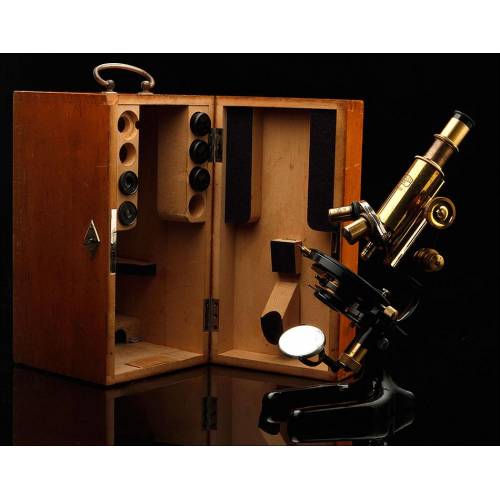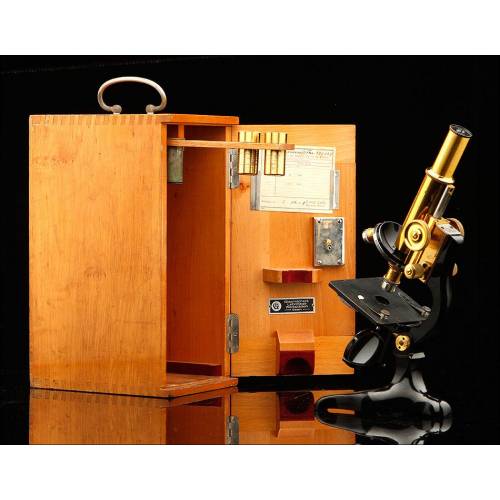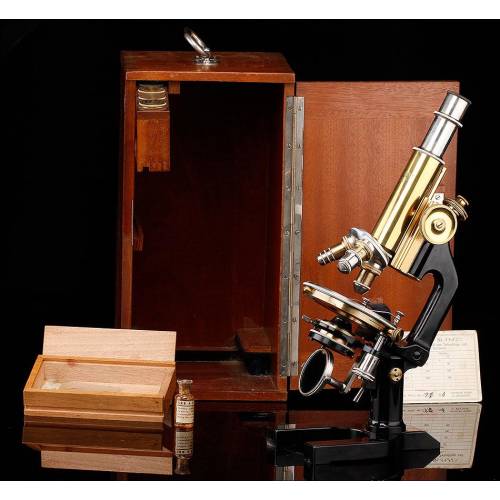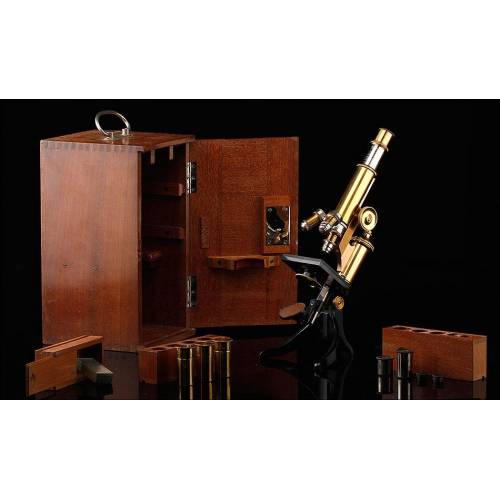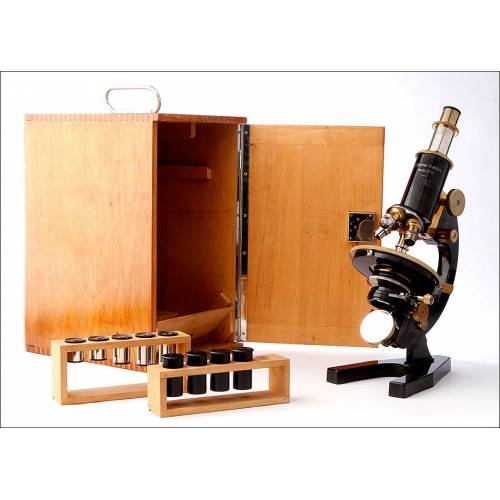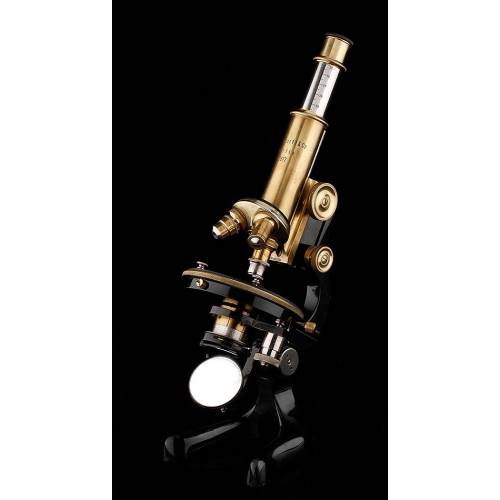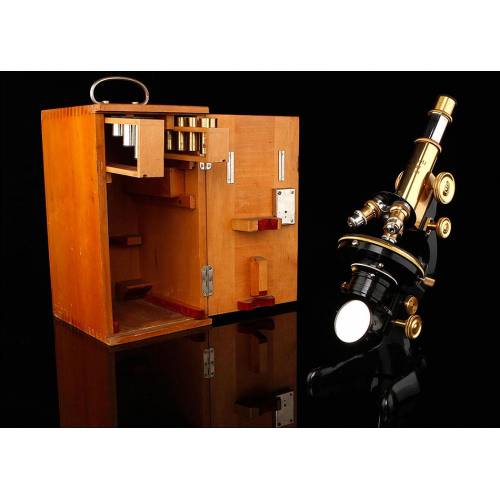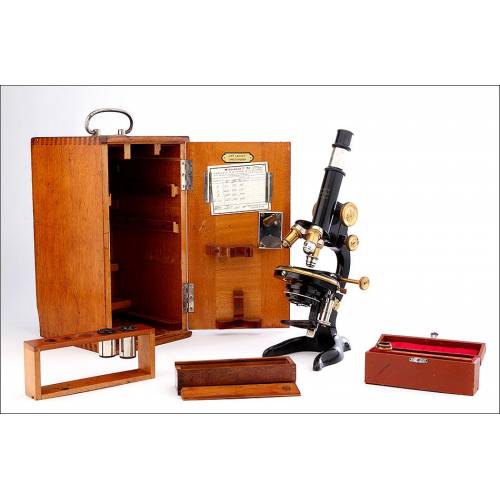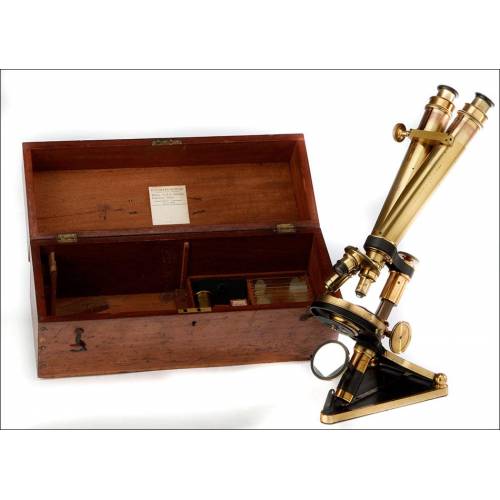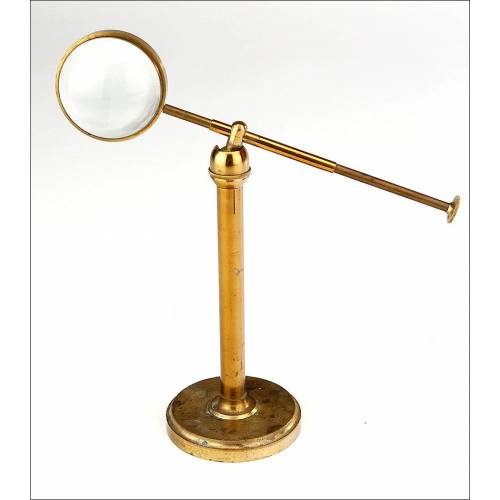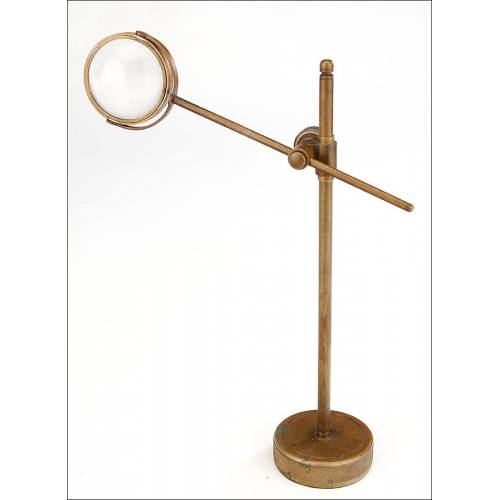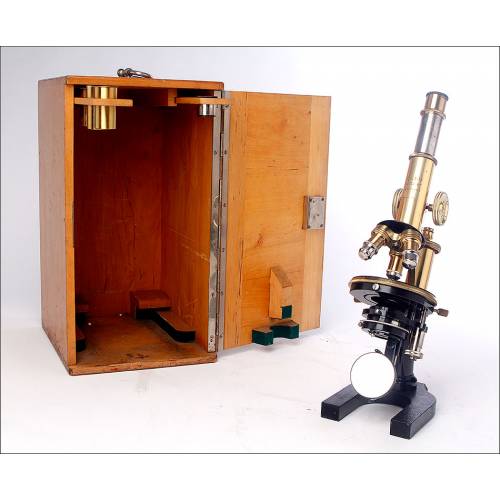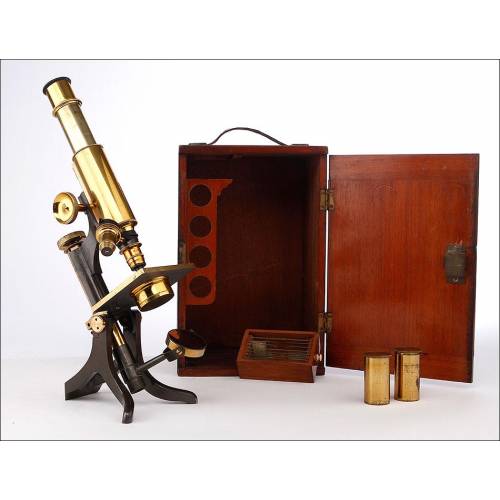D-669
Antique Ernst Leitz Wetzlar Magnifying Glass. Germany, Circa 1910
Antique Leitz Wetzlar magnifying glass in excellent condition. With original storing case. In working order.
Sold!
Antique Ernst Leitz Wetzlar magnifying glass made in Germany circa 1910, very well preserved and in working order. This singular optical instrument, a rare model signed by the prestigious maker E. Leitz Wetzlar, is designed to perform dissections or those jobs where a high magnification is needed (for example, jewelry, watchmaking, textile identification, etc.). The magnifying glass mounts a black-enameled horseshoe metal foot, brass turret, sample plate, top magnifying glass and a light-capturing mirror. All these component parts are original and remain in good condition. The rack-and-pinion system which makes it possible to adjust the height of the glass is in fine working order and slides smoothly, so we can get an accurate focus. This magnifying glass comes in its original storing case, a gorgeous light-colored mahogany wooden box in excellent condition and with functional lock and key set. Exclusive and functional, this antique Ernst Leitz Wetzlar magnifying glass is a rare and attractive piece with a high value for collectors. Dimensions: Width: 4.13 in / 10.5 cm. Depth: 5.12 in / 13 cm. Height: 7.87 in / 20 cm.Ernst Leitz Wetzlar History The beginnings of the famous optic material manufacturing company named Ernst Leitz Wetzlar can be found in the first half of the 19th century, when the mechanic and selft-taught mathematician Carl Kellner founded the Carl Kellner Optisches Institut in Wetlzar, Germany. After his early death his widow maintained the business, and in 1864 the mechanical engineer Ernst Leitz entered the company. Just five years later, Leitz took control of the firm and changed its name for Ernst Leitz Wetzlar. Leitz led the company to success after introducing improvements such as serial production, raising sales volume rapidly after 1871. Leitz microscopes included technical improvements that increased their quality; by the late 19th century the company already had a worldwide reputation. Ernst Leitz died in 1920 and the leadership of the firm passed to his son. As well as for their microscopes and optic material, Leitz became hugely famous for their famous Leica cameras (abbreviation of Leitz Camera).

